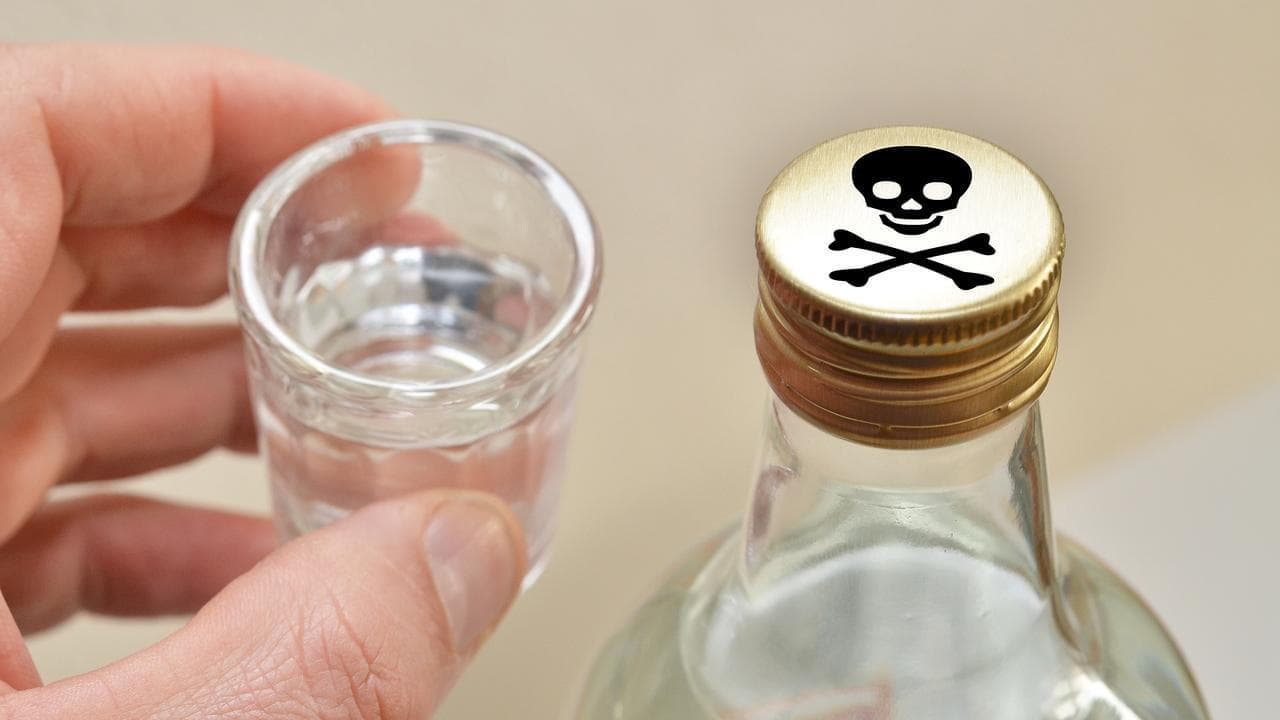Australia's decision to extend its COVID-19 vaccination program to children aged five to 11 has been followed by claims on social media that kids are better off contracting the virus "in the wild" - because "natural immunity" means they can never be infected again.
However, numerous studies have identified that it is possible for those infected with SARS-CoV-2 to be reinfected. While immunity due to prior infection can provide strong protection against the virus, recent research also indicates this immunity may wane over time.
The claim was made in a video posted on Instagram on December 11, a day after the federal government announced the vaccine rollout for children.
In the video, a man claims: "It is undeniable that if you are a young child you are much better off meeting with the virus in the wild, developing natural immunity, which would actually protect the community because you would no longer be able to infect anyone else and you would no longer be able to reincur the virus ever again." (video mark 5min 10sec).
But research using real-world data shows there is a risk of reinfection following an initial case of SARS-CoV-2, the virus that causes COVID-19, despite the protection provided by antibodies from prior infection.
A report from Imperial College London, released on December 16, found the protection offered by prior infection with SARS-CoV-2 against reinfection with the new Omicron variant could be as low as 19 per cent.
The research, which has not been peer-reviewed, used UK public health data to estimate the risk of reinfection with the new variant was 5.4 times greater than with the Delta variant.
An earlier US study of reinfection risk in healthy young adults, published in The Lancet in July, found those with evidence of prior infection had about one-fifth the risk of subsequent infection when compared to the cohort who showed no indication of prior infection.
"Although antibodies induced by initial infection are largely protective, they do not guarantee effective SARS-CoV-2 neutralisation activity or immunity against subsequent infection," the authors concluded.
One analysis of data from Qatar, published on December 15, showed the efficacy of prior infection against reinfection with the Beta variant of the virus was estimated at 92.3 per cent. Earlier studies indicated lower levels of protection (see examples here, here and here), although none dealt with the more infectious Delta or Omicron variants.
Meanwhile, other research has indicated immunity due to prior infection from SARS-CoV-2 can wane over time.
An Australian study published in Nature Medicine in May, which modelled the impact of antibody levels on immune protection, identified similar levels of "decay" in protective antibodies against SARS-CoV-2 among both previously infected and vaccinated individuals.
A co-author of the study, Professor Miles Davenport of the Kirby Institute in Sydney, told AAP FactCheck it was a misunderstanding that infection with SARS-CoV-2 might provide stronger immunity than vaccination.
"While this may be true for some of the less potent vaccines (such as CoronaVac), it is clear that both the mRNA vaccines (commonly referred to as Pfizer and Moderna) and the Novavax vaccine provide around 2-4 times higher immunity (neutralising antibody levels) than you would get from being infected, as well as higher protection from future infection," he said in an email.
In contrast, an Israeli pre-print study, posted in August but not yet peer-reviewed, found prior infection offered significantly higher protection against infection with the Delta variant than vaccination alone. However, the authors also identified their results could suggest natural immunity against the variant waned over time.
A study published in The Lancet in October, which used data on the durability of immunity from "close coronavirus relatives" of SARS-CoV-2 to estimate likely reinfection timeframes, found repeat infection with the virus under endemic conditions would occur at a median interval of 16 months.
"As a pioneering estimate, our findings are consistent with the mounting reports of eventual reinfection by SARS-CoV-2, and indicate that reinfection after natural recovery from COVID-19 will become increasingly common as the pandemic progresses," the authors said.
Study co-author Professor Jeffrey Townsend, from the Yale School of Public Health, told AAP FactCheck it was not only possible for a person who had the virus to become reinfected, this was likely to occur more quickly without vaccinations or other mitigation measures.
"Of course it will vary because of happenstance, but the typical interval between infections will usually be between three months and five years under endemic conditions," he said.
A study published by the US Centers for Disease Control and Prevention (CDC) in August examined reinfection rates among a cohort of Kentucky residents infected with SARS-CoV-2 during 2020. It found being unvaccinated was associated with more than twice the odds of reinfection compared to being fully vaccinated.
On the concept that children were better off catching COVID-19 "in the wild" and developing natural immunity rather than being vaccinated, Prof Townsend said he had seen no evidence to support the claim.
"Frankly, all the evidence points to a benefit to vaccination before infection," he said.
University of Otago immunologist Dianne Sika-Paotonu told NZ's Science Media Centre that while children were more likely to have mild or asymptomatic disease than adults, they could still catch the virus, become unwell and end up with "long COVID".
"Those children who've had a previous COVID-19 infection should still get vaccinated, as reinfection is possible," Dr Sika-Paotonu told AAP FactCheck via email.
"It's possible that children and adolescents can transmit to and infect others with SARS-CoV-2, even when they have no symptoms."
She also pointed to research which indicated younger children may be at greater risk of transmitting SARS-CoV-2 to caregivers and siblings than older children.
The Verdict
The claim that natural immunity means a person can't catch COVID-19 again is false. Multiple studies based on real-world data indicate that those with prior SARS-CoV-2 infection can become reinfected with the virus. Research also indicates protection due to antibodies from prior infection may wane over time and be less effective against the more transmissible variants of the virus.
False - The claim is inaccurate.
AAP FactCheck is an accredited member of the International Fact-Checking Network. To keep up with our latest fact checks, follow us on Facebook, Twitter and Instagram.












